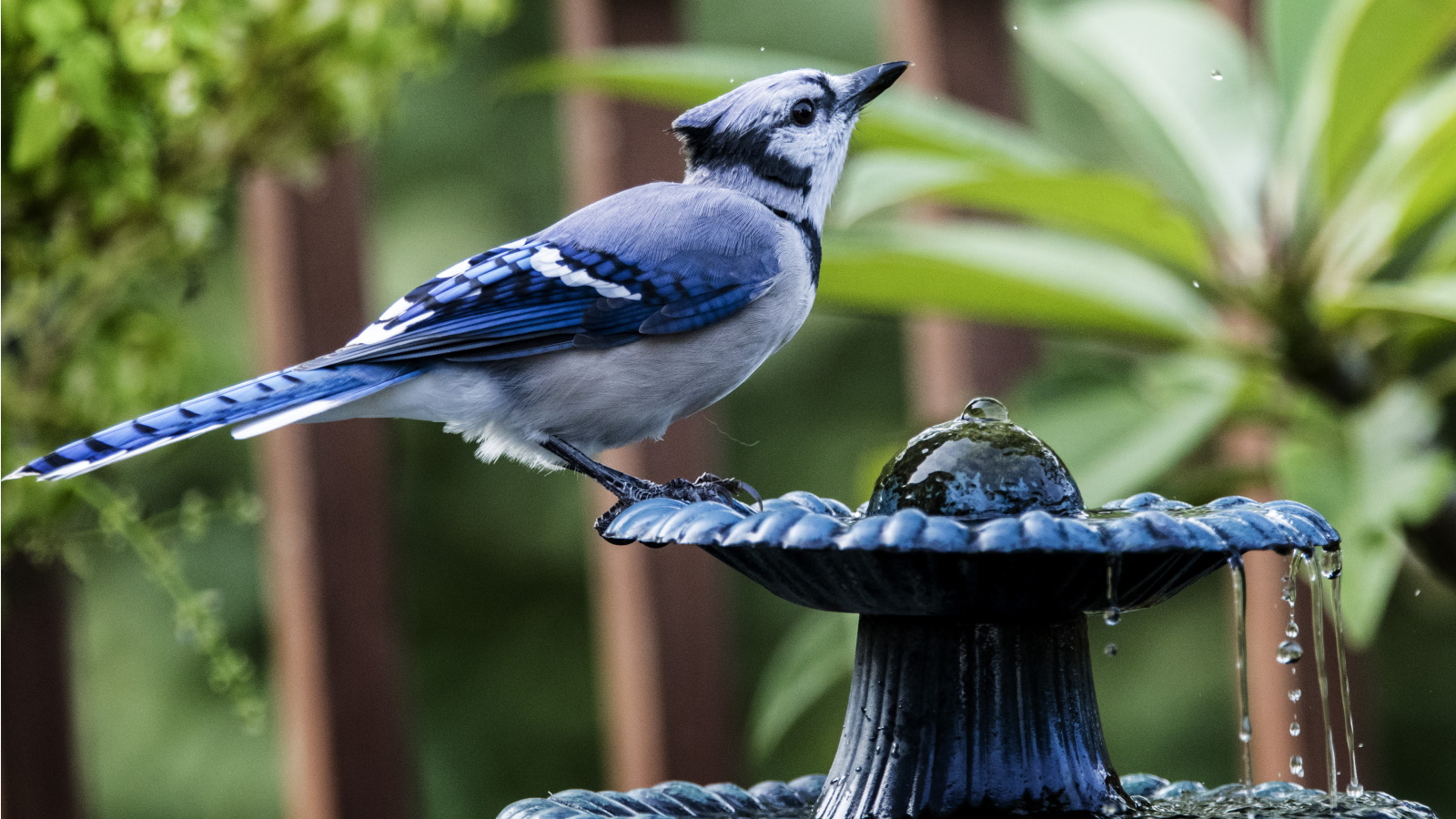
We're not the only ones who like to enjoy our backyards in summer, as the warmer weather encourages wildlife to bask in the sun and take advantage of what our yards have to offer. No matter where you garden, it's likely you'll encounter birds flying from tree to tree and searching for food in your outdoor space.
You might already have plenty of plants for birds in your yard and successfully helped garden birds in winter, but it's important to keep supporting them during summer months. Luckily, there are so many things you can do to help the birds in your yard at this time of year - and lots of them can be fun to get involved in.
I spoke with experts to find out more about helping garden birds in summer and they shared their top tips. Here are five things you can do for the birds in your backyard.
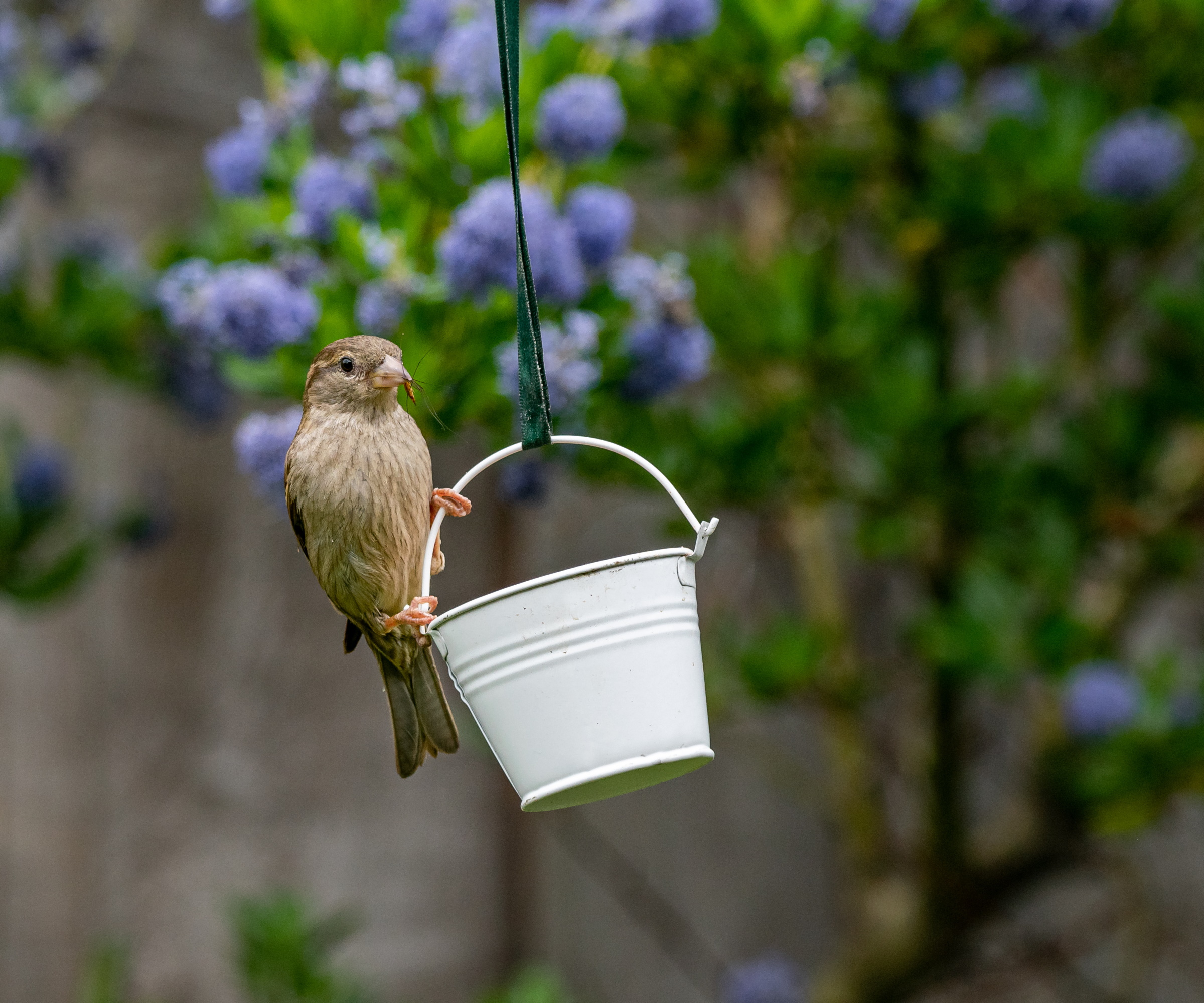
5 ways to help garden birds in summer
Birds of all types can be found across different US hardiness zones, all of which will seek different food sources and need shelter in different ways. From bird houses to bird baths, doing the simplest of things in your yard can make a difference to the number of birds you spot in your outdoor space. Here's how experts recommend helping garden birds in summer.
1. Provide water sources
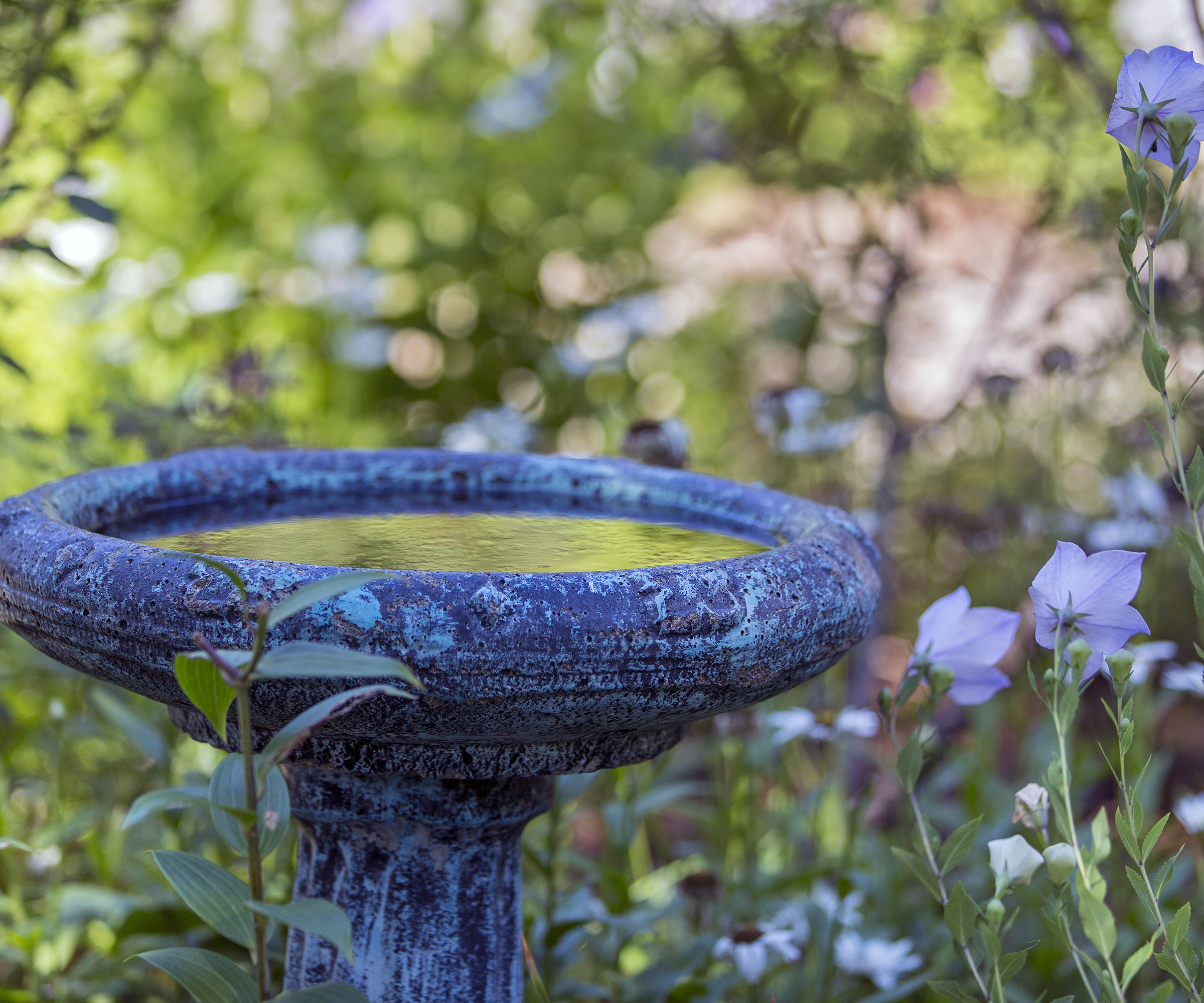
Just as we get thirsty during warm weather, birds equally need water to stay hydrated. Providing water sources not only offers them a drink when they need it most, but can also be a spot for them to cool down during the hottest parts of the day.
'Installing a bird bath is a great way to do this – it’s important to keep it clean and filled,' says Maria Kincaid, ornithologist from FeatherSnap. 'You can find bird baths with fountains which will help keep them clean for longer, but a bird bath without a fountain is still great,' she adds.
You can even try your hand at making a bird bath to repurpose different household objects. Likewise, creating a wildlife pond can offer an alternative water source for garden birds.
This gorgeous bird bath is made from weather-resistant polyresin. It has a solar powered fountain for self-cleaning and allows birds to drink and bathe at the same time.
2. Grow native plants
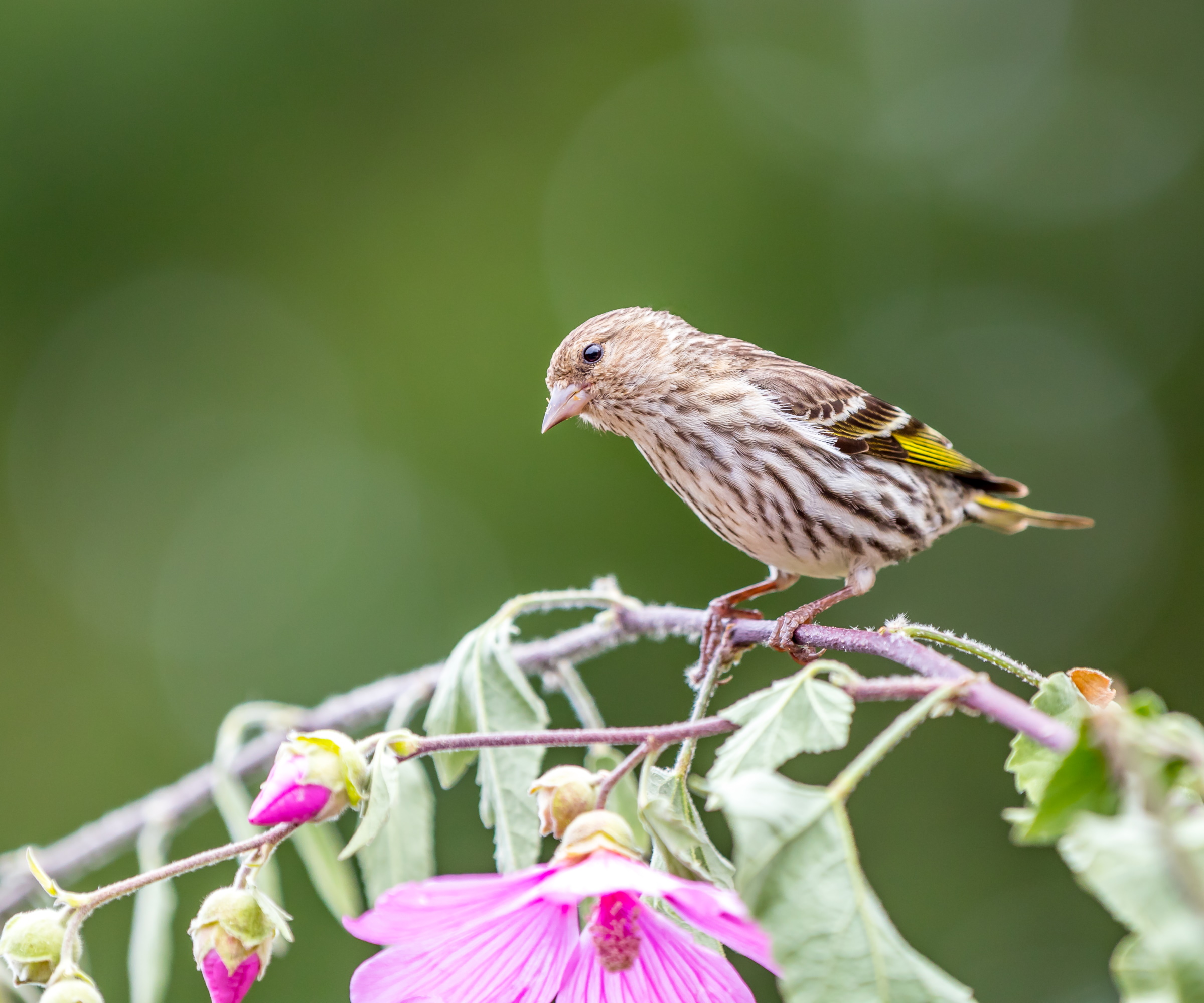
When choosing which plants to offer the birds in your yard, it's best to think native planting and what thrives in your local climate. There are so many benefits of opting for native plants, including supporting local ecosystems and offering some of the best food sources for garden birds.
'While they’re breeding, many songbirds have a diet that is heavier in insects, to give protein to their young. Flowers and plants, especially native plants, are a great way to attract these insects to your yard,' says Maria. 'When they fruit or go to seed, they’ll also provide another important food source for birds,' she adds.
Plenty of the best plants for seedheads will serve birds through summer and fall, first attracting insects and then offering delicious seeds for them to feed on. This can also lead to birds dispersing seeds around your yard and creating new plants.
3. Top up bird feeders
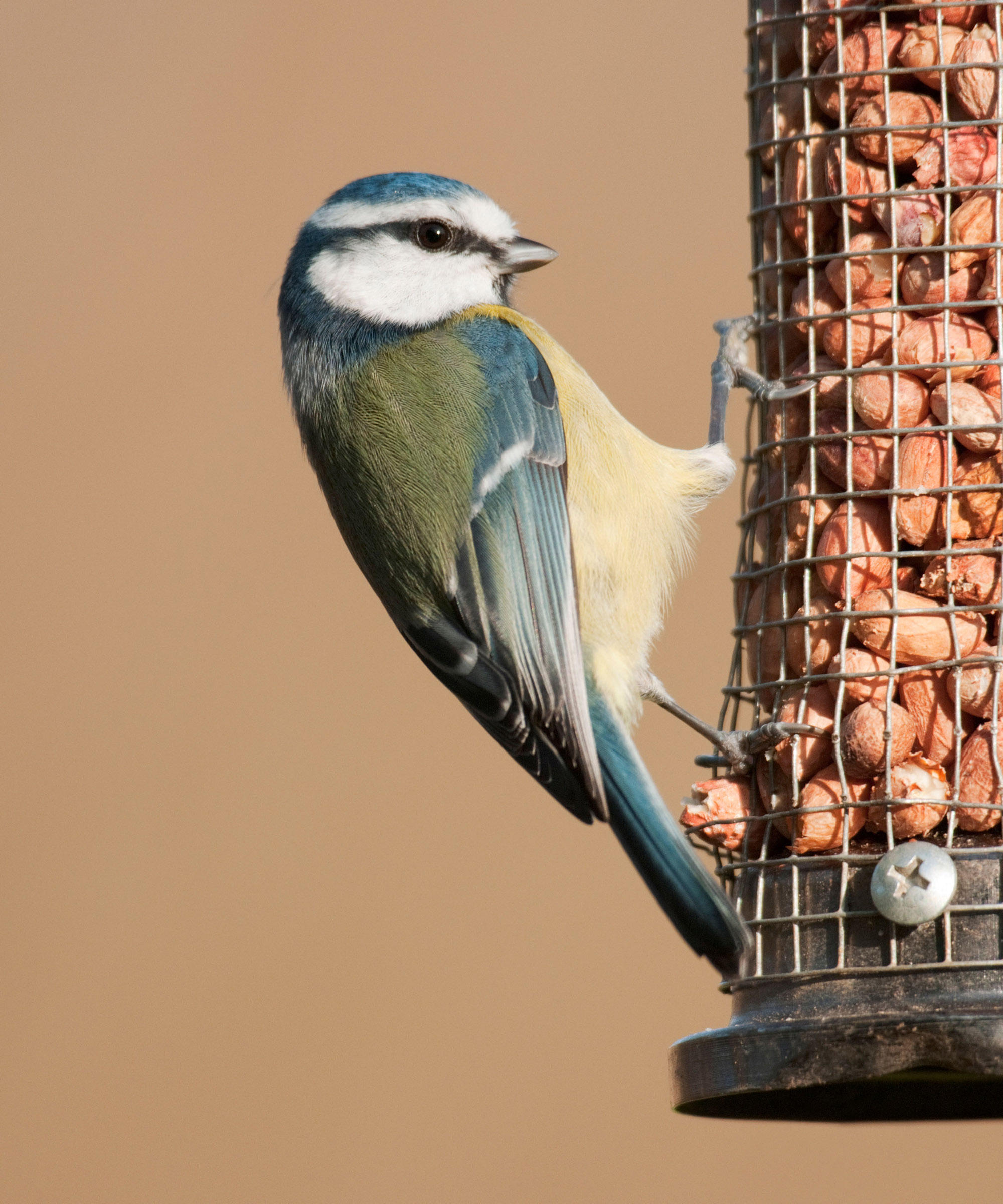
It sounds obvious, but bird feeders are an essential source of food for garden birds. You should make sure to research exactly where to hang your bird feeder to best help the birds in your yard, and also take note of what not to feed birds before filling your feeder.
'It’s even more important to keep them clean during the summer, to make sure that you don’t get mold or mildew growth. Clean and sanitize about once a week in the summer,' suggests Maria.
Using bird feeders with cameras can allow you to watch the birds that come and visit your yard during summer. Just be aware that birds will often seek insects as natural food sources more often in summer, so you may find you don't need to top up your bird feeder as often as other times of year.
Watch birds with this bird feeder that captures HD footage. It also records and saves the images and video to look back on. Curate your own Bird Book which the saved footage to identify birds and learn facts about them.
4. Avoid pesticides
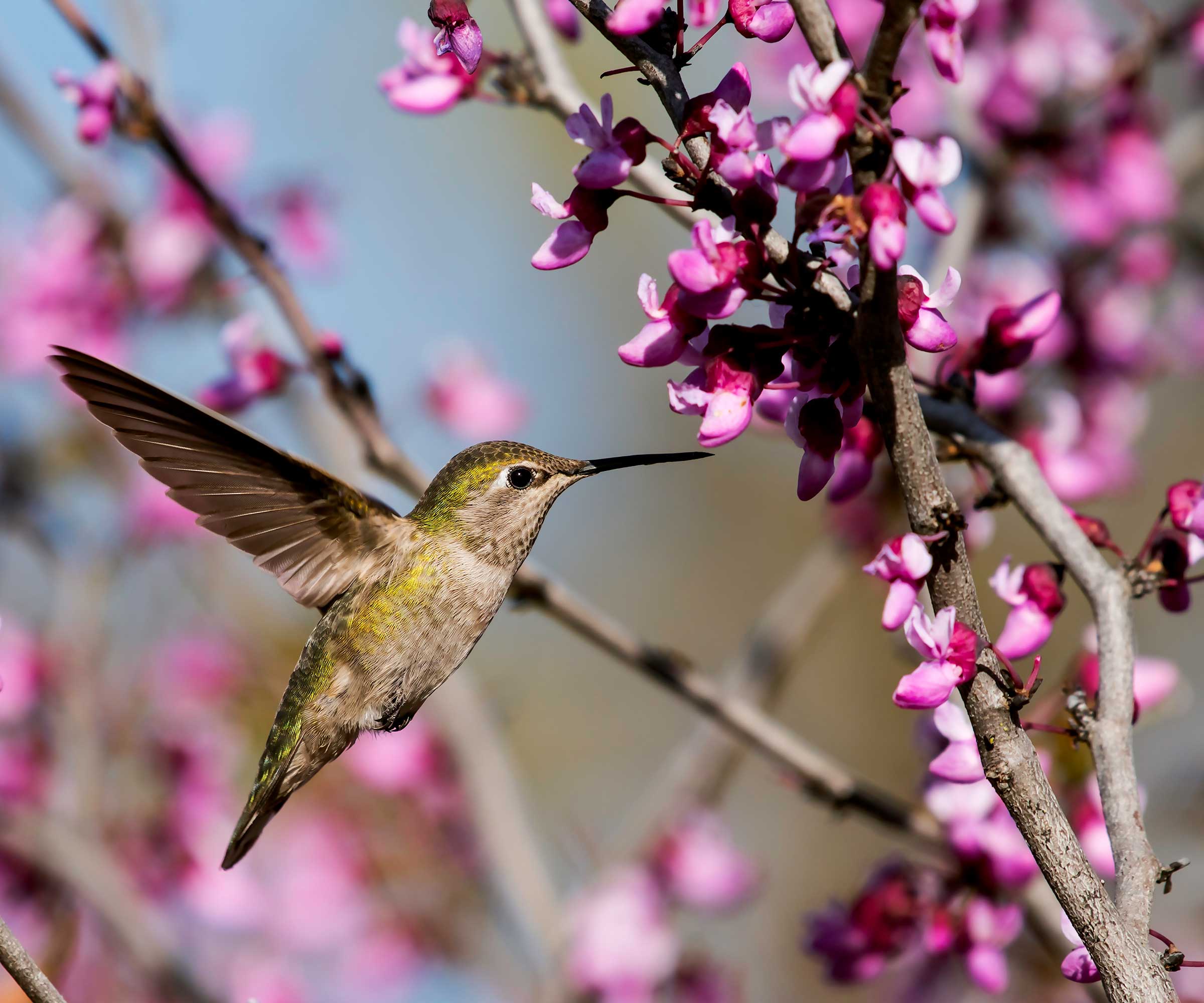
It's no secret that pesticides contain chemicals that are harmful to insects and will kill them off. When it comes to helping birds in summer, it's vital to put away any pesticides or homemade bug sprays.
By getting rid of insects with these chemicals, you remove essential food sources for birds in summer. Likewise, pesticides may even contain chemicals harmful to birds.
You might want to try using pest-repellent plants to keep any pests at bay while also not eradicating insects populations that birds feed on. During summer, allowing birds to eat insects might even help you with pest control.
5. Protect birds from pets
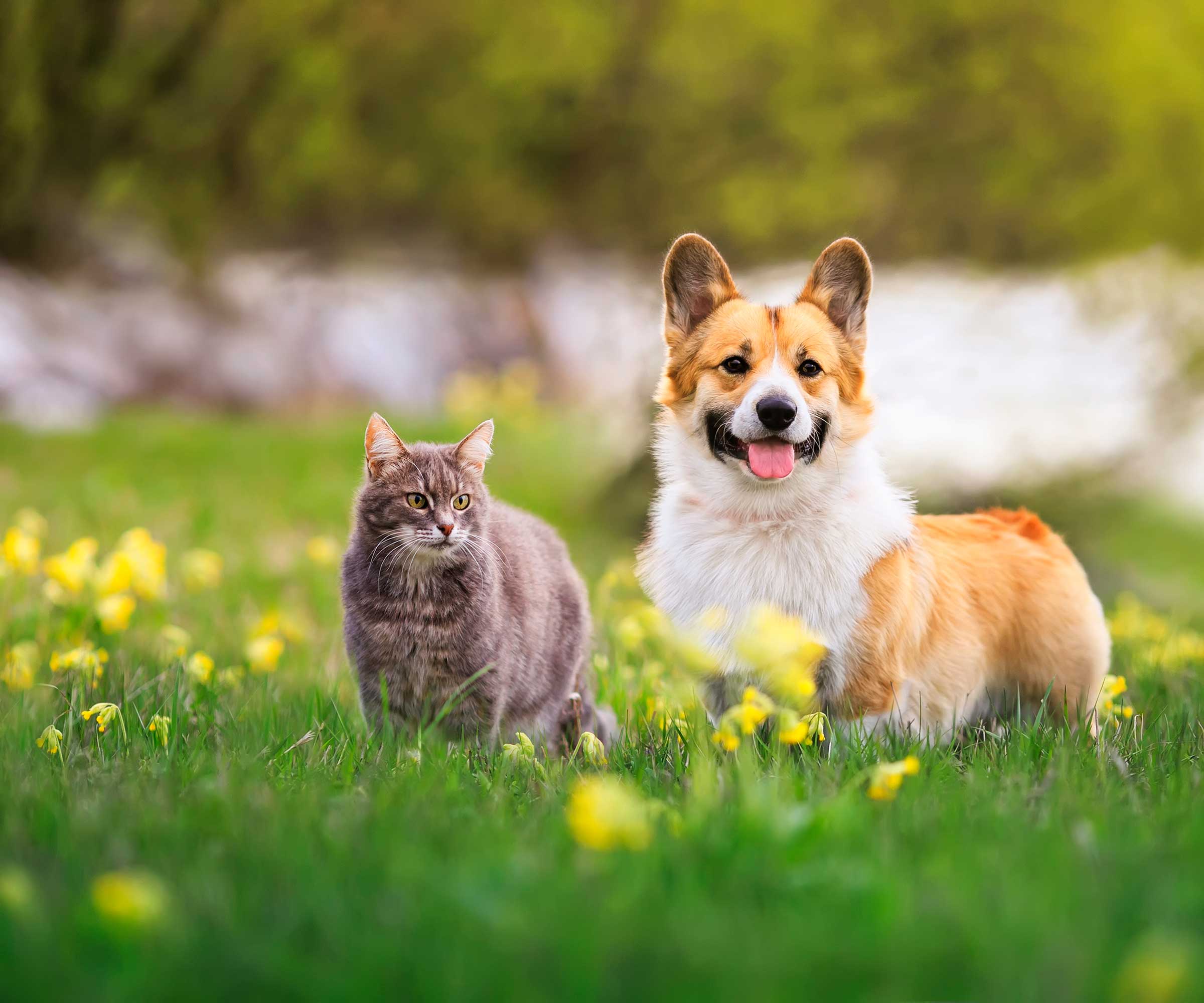
As well as there being more birds in your yard in summer, there's no doubt that our furry companions will be making more use of outdoor space. It can be wise to try protecting garden birds from cats and dogs that are likely to chase and scare them away.
'Outdoor roaming or feral cats are a huge predator of birds, and can easily get to nests, go after fledglings that are just learning to fly or even kill adult birds,' notes Maria. 'Cats are estimated to kill around 2 billion birds a year,' she adds.
You can keep garden birds safe from pets by placing bird houses out of sight and reach of curious pets, install cat-proof fences and simply supervising your pets' outdoor time more closely.
FAQs
Why are there no birds in my yard during summer?
There are many reasons why you might find there aren't any garden birds in your yard during summer. It might be because your yard doesn't offer them food sources, water or shelter, or maybe you have a pet that chases them away. Luckily, there are plenty of ways to encourage and support garden birds in summer. It's best to just strip it back to basics and make sure you're providing for their essential needs.
Now that the temperatures are coming to their peak for the year, it's key to keep on top of support for garden birds. You can also consider adding some of the best birdhouses to your yard, providing extra shelter and nesting sites for birds to enjoy.
It's never too early to start thinking about fall and winter garden tasks, so why not read up on how to feed birds in winter to continue supporting them in colder months.







